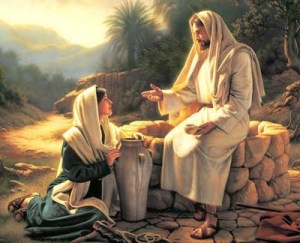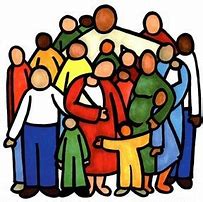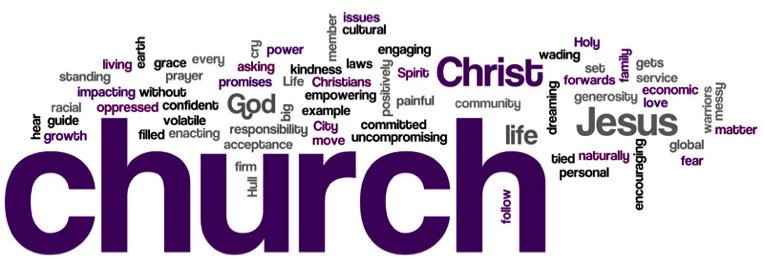AUSTRALIAN BUSHFIRES
LIKE MANY AUSTRALIANS I am finding this current bushfire emergency extremely difficult to comprehend. Prior to the fires erupting into catastrophic conditions, we were grappling with unprecedented drought that had drained dry much of our land causing massive dust storms to obscure the countryside, and towns to truck in water for basic needs. Our nation was in a bad way before the bushfires, but it was nothing like this.
Ours is a vast land in which what happens in the harsh and barren Outback seldom rates a mention in the highly populated coastal fringes. The drought was “out there”. However, as its impact moved closer to our cities where much of our food was grown, we began to wake up that this was a national crisis in which we were all involved. And then came the fires. Fires that do not respect where one lives; fires that have come dangerously close to our major cities; fires that stomp through field and forest destroying everything in their paths.
Fires that have ripped through tinder dry bushland that has not seen rain for years, coupled with heat waves that have brought the highest temperatures on record. Fire storms that have formed their own weather systems that whip up flames and embers sparking multiple unfolding catastrophes that are impossible to defend. Whole towns have been obliterated. Hundreds, possibly more than a thousand, homes and businesses have been decimated. Untold livestock and wildlife have been annihilated. An unknown number of people have lost their lives defending life and property, many are missing. This is a disaster of unimaginable proportions. It leaves me speechless.
coupled with heat waves that have brought the highest temperatures on record. Fire storms that have formed their own weather systems that whip up flames and embers sparking multiple unfolding catastrophes that are impossible to defend. Whole towns have been obliterated. Hundreds, possibly more than a thousand, homes and businesses have been decimated. Untold livestock and wildlife have been annihilated. An unknown number of people have lost their lives defending life and property, many are missing. This is a disaster of unimaginable proportions. It leaves me speechless.
As I watch on from the comfort of my lounge room, thousands of kilometres from those fires, I wonder how I should respond to this catastrophe. I hear the description of those caught up in the fire zones; those who escaped with nothing but the clothes they were wearing; those who had lost their homes of 40 or 50 years—grateful that they were still alive; those who sheltered on small boats away from their blazing beaches; our weary fire fighters exhausted after weeks of serving our land. Those who lived in those tiny tourist towns who have lost everything, and the holidaymakers who have literally had the “holiday from hell”.
During this chaotic catastrophe reports come through of the generosity of many people who are donating clothes, groceries, money, services to help ease the hell others are experiencing. Volunteers from all religious persuasions are responding to this crisis—Indian Sikhs providing meals, Muslims cooking barbecues, the Salvation Army catering for others in need. Some of those in the isolated fire zones have expressed appreciation to know they are not alone, that others care and that they are not forgotten. But in the middle of it all is the immeasurable stress, distress and enormous anxiety that has impacted individuals, families and whole communities for the past weeks and months. How can I respond?
I pray, but my prayers seem so futile. When I watch the media reports, I am overwhelmed by what I see and hear. And I know that if I dwell too much on what is happening “down south” my heart will break. I do not know—I cannot imagine—how people can cope in such tragic circumstances, how they will manage to rebuild their lives and face the future.
I pray for those who do not know God, who have no understanding of His presence with them in such atrocious conditions, that they will know the reality of his love, compassion and care—despite what is happening to them—perhaps as shown through the kindness of a stranger, the actions of the fire fighters, the love of a neighbour.
I pray for those who do know God, that their faith will shine forth in this dreadful darkness becoming a light to those around them, a beacon of hope in a sea of hopelessness, and that they will experience the deep peace of God that is beyond comprehension as they face an uncertain future.
I pray for those of us not directly affected by this devastation that we will respond as best we can to this unfolding, unprecedented, apocalyptic-like catastrophe, reaching out to those whose lives will never be the same again.
 a leper. Regardless of how much I tried to do for God in and through the church, I never felt good enough; I always felt like an outsider on the edge of the church and never ever close to God’s chosen few in his inner circle. That was what I had experienced in churches. It was not what God had been telling me.
a leper. Regardless of how much I tried to do for God in and through the church, I never felt good enough; I always felt like an outsider on the edge of the church and never ever close to God’s chosen few in his inner circle. That was what I had experienced in churches. It was not what God had been telling me. “Come to me, all you who are weary and burdened, and I will give you rest. Take my yoke upon you and learn from me, for I am gentle and humble in heart, and you will find rest for your souls. For my yoke is easy and my burden is light” (Matthew 11:28-30).
“Come to me, all you who are weary and burdened, and I will give you rest. Take my yoke upon you and learn from me, for I am gentle and humble in heart, and you will find rest for your souls. For my yoke is easy and my burden is light” (Matthew 11:28-30). part of the picture. Church relates to the gathering of people who meet there, who worship together and share their lives with each other in a significant way. It is not merely about sitting in a church pew looking at the back of the neck of the person in front. It is more than “sharing the peace”, then forgetting about who we have spoken to for the rest of the week. Church is about community, about learning to live with one another despite our differences, and about experiencing God’s love, joy and peace within the body of Christ, his Church.
part of the picture. Church relates to the gathering of people who meet there, who worship together and share their lives with each other in a significant way. It is not merely about sitting in a church pew looking at the back of the neck of the person in front. It is more than “sharing the peace”, then forgetting about who we have spoken to for the rest of the week. Church is about community, about learning to live with one another despite our differences, and about experiencing God’s love, joy and peace within the body of Christ, his Church.
 Brisbane suburb, wrote a book entitled, Can You Hear The Heartbeat? It described how Jesus related to those who lived on the edge of society, the abused, the outcast, those considered to be unclean and unaccepted in their communities, and encouraged readers to meet people where they were at in life. Dave Andrews wrote of the radical lifestyle he and his wife lived in order to show God’s loving heartbeat for the forgotten people in his community, practising acceptance of people on their terms and having their home permanently open to the homeless, the abused, alcoholics and others in need. Their lifestyle was radical indeed.
Brisbane suburb, wrote a book entitled, Can You Hear The Heartbeat? It described how Jesus related to those who lived on the edge of society, the abused, the outcast, those considered to be unclean and unaccepted in their communities, and encouraged readers to meet people where they were at in life. Dave Andrews wrote of the radical lifestyle he and his wife lived in order to show God’s loving heartbeat for the forgotten people in his community, practising acceptance of people on their terms and having their home permanently open to the homeless, the abused, alcoholics and others in need. Their lifestyle was radical indeed.